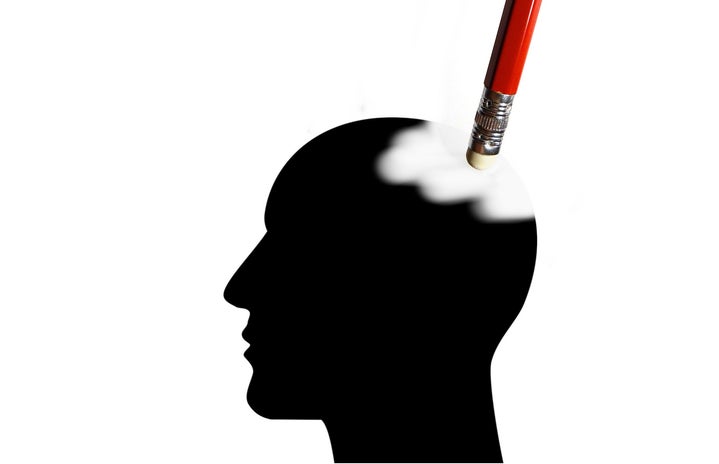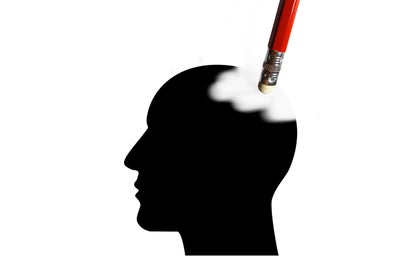I don’t remember the day my grandfather was diagnosed with Alzheimer’s disease. In my head, there was a period in my life where he was fine and there’s another where he wasn’t, there’s no in between. While Alzheimer’s doesn’t happen overnight, it’s a slow burn. Clinically, it wasn’t diagnosed, but my family knew something wasn’t right for a long time.
According to the Alzheimer’s Association, dementia is the general term for the loss of cognitive mental ability. Dementia can be caused by a number of different conditions, the most common being Alzheimer’s disease. It starts off with trouble remembering newer information because the disease targets the part of the brain connected to learning first. Over time, it spreads and can grow to the point where it’s difficult to do menial tasks like eating, sleeping and walking. Currently, there is no way to cure Alzheimer’s.
For as long as I can remember, I was told “he won’t remember” or “he’ll probably forget in the next hour” about most things to do with my grandfather. Then it grew to forgetting how old he is or my cousins and I are. To this day if you ask him how old he is, he’ll tell you he’s 52 years old, despite the fact that he’s actually 72. He’ll try to subtract the year he was born from the year it is to calculate his age, but he doesn’t remember how to carry the zeros anymore. Every time I speak to him, he asks what grade I’m in. For the first couple of months, seeing the excitement on his face when I told him that I was in university was heartwarming, but being three years into my degree, the novelty has worn off.
I hate the concept of “losing” him because he’s still here. Every morning when I come down for breakfast, he’s downstairs sitting at his spot in front of the T.V with his cup of tea. He asks me everyday if I want a cup of tea and I tell him that I’m making myself coffee. He tells me stories of when my mom was a kid and how he built himself up from nothing, everyday. I have these stories memorized because I’ve heard them so many times. I soon realized that the reason my grandfather tells me the same stories everyday is because that’s all he remembers and a part of me believes he tells me to remind himself, so he can remember, so he can hold on to it.
It’s not fair that someone with such a strong heart and beautiful soul has to go through this terrible disease. My grandpa did amazing things; I know that and my family knows that, but he doesn’t know it because while the experience wasn’t taken from him, the memory was.
While he hasn’t completely forgotten me, he barely remembers me. I know that he’ll remember the idea of me for a while, given I’m his oldest grandchild, but I know it’s not long before he forgets my three year old brother. Just like when he was around for my high school graduation and when my basketball team won finals, he’ll be around for my university graduation, but he won’t know it happened. It’s like he’s there, but he’s not really there. That’s the hardest part, watching him become a shell of the person he used to be.
I want to believe that he loves me. I know his brain doesn’t really remember me, but I tell myself that his heart does. I tell myself the man who bought me fries and an apple pie from McDonald’s on his walk everyday and took me to his racetrack to show me his horses, is still there, somewhere inside him. Most of all, I tell myself that I haven’t lost him. That might not be entirely true, but it gets me through. Until he’s gone, I still have him, but the definition of “gone” is subjective when Alzheimer’s is in the equation.
I don’t know what happens inside my grandpa’s head, but I do hope he has happiness in the abyss that is his mind. I don’t know what makes him happy anymore, I don’t know if anything does, but I like to believe that telling me the stories I’ve heard countless times brings him joy. That’s why, no matter how many times he repeats himself, no matter how many times I have to hear the same words, I’ll always listen.
There is no cure for Alzheimer’s disease, there’s no way to slow it down and I don’t know if I’m giving myself false hope when I tell myself that there will be one in my grandfather’s lifetime, but that’s the sad reality for a lot of families. It’s that hope, whether it’s false or not, that gets us through because we have to watch a loved one struggle with something completely out of their control. To watch someone disappear, while still being right in front of you, is something I wish no one had to do.
Nana,
I love you so much and I’ll never stop. I loved you when you used to take me to the racetrack and I love you just as much every morning when you ask me if I want tea because you can’t remember that I only drink coffee.
While you’re not who you used to be, I will love the man you are today, and the man you were the same way because at the end of the day, you are still you and I know that a disease doesn’t define you. The love this family has for you and you for it, does.



